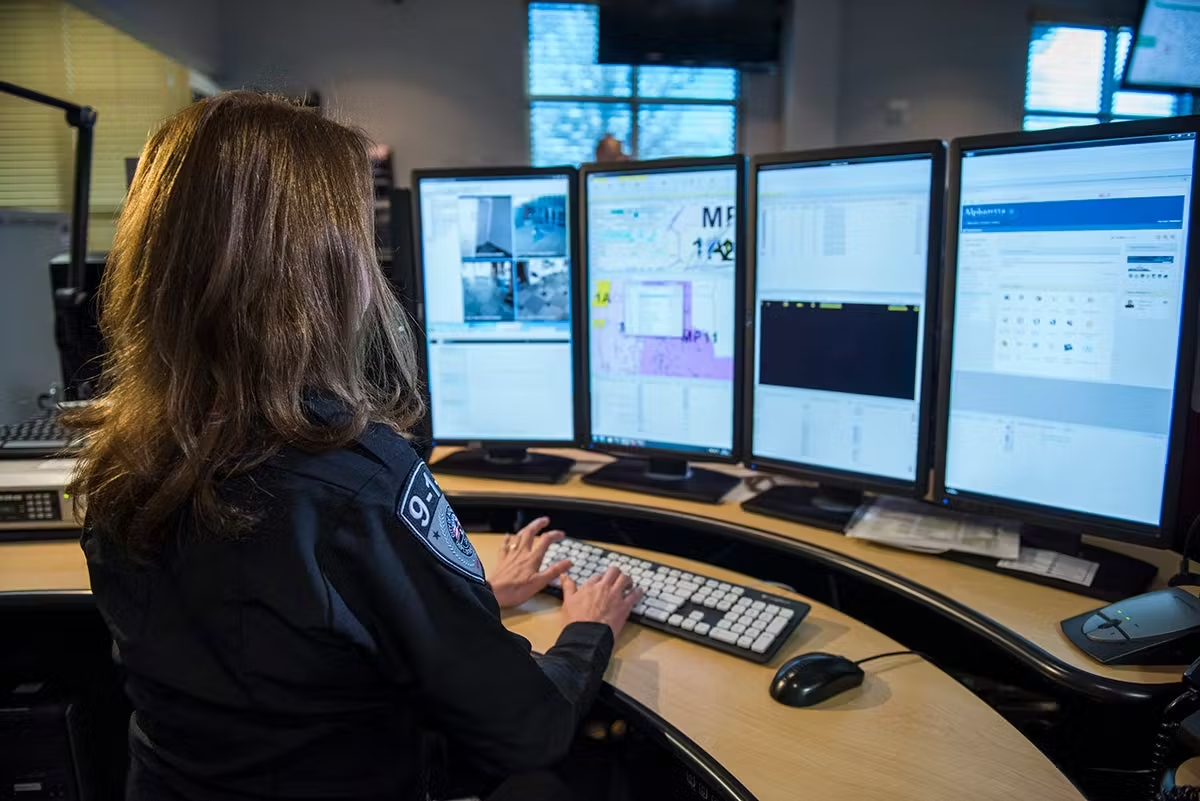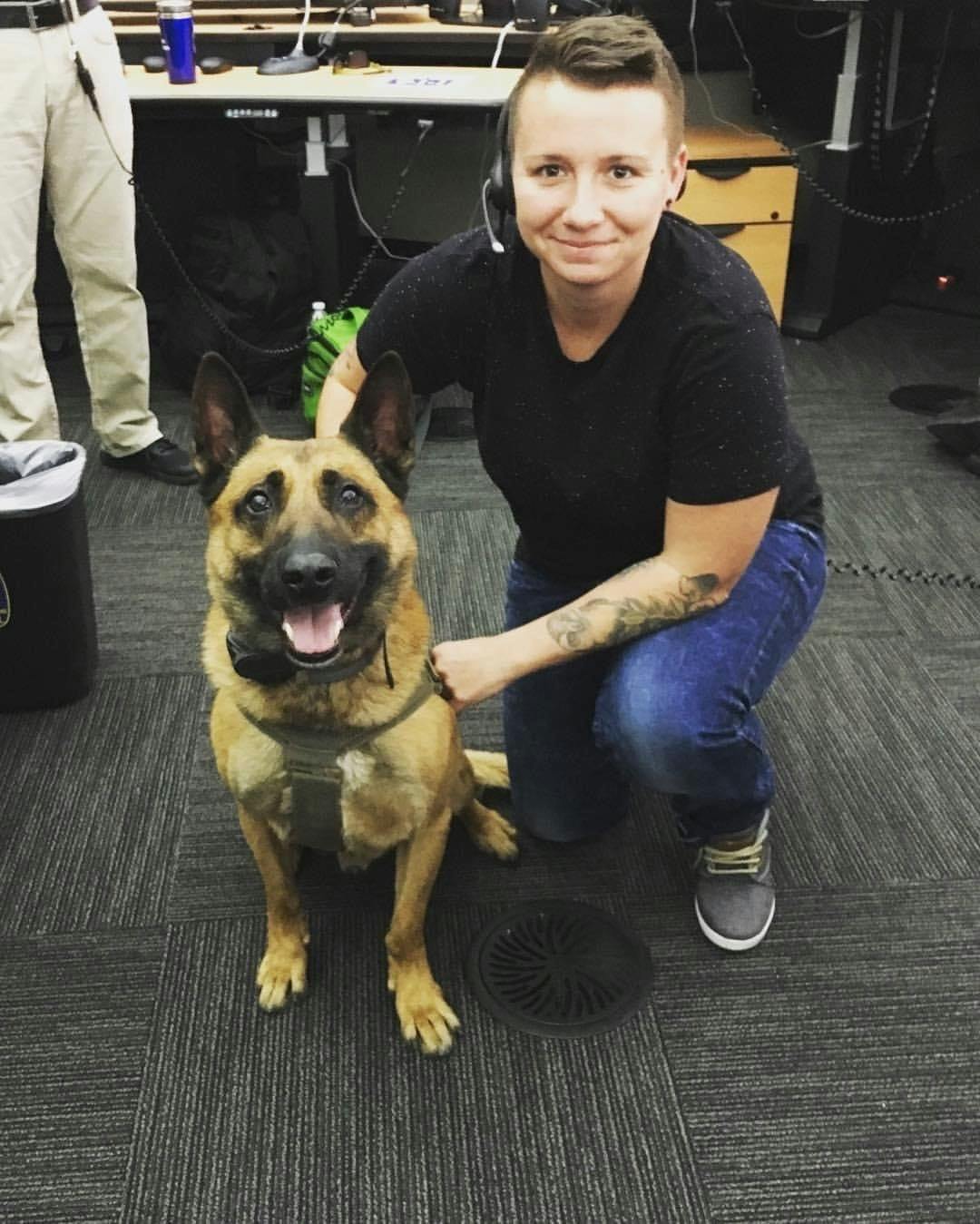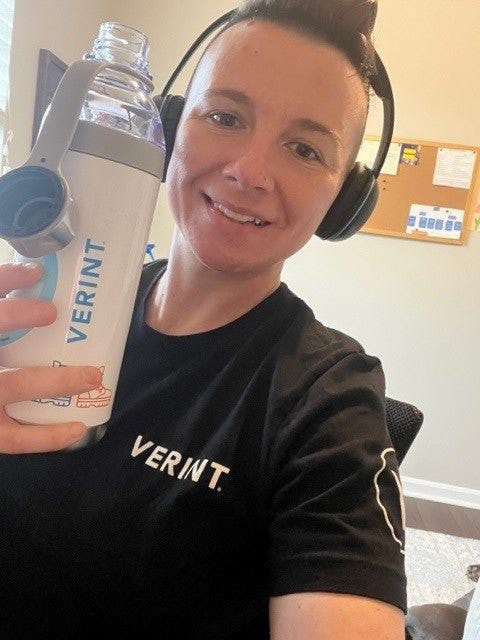
From the Other Side of The Headset: Thriving in Tech after a Mid-Career Change


I asked Casey Rives, solutions consultant at Verint, to answer questions about her technology career transformation. She has 10 years of public safety experience and is passionate about her career pathing. As a solutions consultant for the public sector/emergency services industry, she uses her field experience in public safety to truly connect with our customers and be their voice throughout the consulting process.
Q: Did you ever sit down and plan your career? What drew you into the technology industry?
A. Yes and no! When entering college, I had planned out my future career and based my intended degree on those plans. I think that, throughout our educational journey, we are made to believe that choosing a career after college will be a straightforward path. However, I believe that people’s needs, wants, passions and expectations change as they grow. As for myself, when choosing a career, I knew I had to pick a profession that gave me purpose and fulfilled my passion for helping others.
 I didn’t expect to enter the world of public safety, it was never a part of my career planning thought process. In 2021, after an 11-year career in public safety, I decided to look for opportunities that would allow me to take my experience and passion into the world of technology. I took an interest in technology because I saw the need for advanced solutions to assist in emergency response. Agencies were facing new challenges and decision makers were realizing that new technology was needed to overcome these new challenges, reduce liability, and exceed compliance for positive outcomes.
I didn’t expect to enter the world of public safety, it was never a part of my career planning thought process. In 2021, after an 11-year career in public safety, I decided to look for opportunities that would allow me to take my experience and passion into the world of technology. I took an interest in technology because I saw the need for advanced solutions to assist in emergency response. Agencies were facing new challenges and decision makers were realizing that new technology was needed to overcome these new challenges, reduce liability, and exceed compliance for positive outcomes.
Technology solutions have really taken off in the world of public safety—it took a long time to get there but it’s truly an exciting time for the industry. So, my path to Verint was very much planned and intentional. I knew that if I was going to take a leap and change careers, it had to be the right path.
Q: What top tips would you give to an individual who is trying to excel in their career in technology?
A: When transitioning from public safety into a tech-related career, I knew I needed to revamp my resume. While I was familiar with the technology that public safety customers needed and were using, I didn’t have a lot of technology experience to set myself apart from others in the industry. I utilized a lot of free resources, such as LinkedIn Learning, to take courses and expand my knowledge—while also obtaining certifications in relevant topics.
“There are a lot of resources out there to help advance your knowledge in specific topics, which enables you to really craft your resume appropriately.”
 One of the biggest pieces of advice I can give—network! There is a huge community out there that is willing to help. Especially since the pandemic, networking in the virtual world has become a way of life. Whether you are utilizing LinkedIn or social media platforms, don’t be scared to reach out to others in the industry.
One of the biggest pieces of advice I can give—network! There is a huge community out there that is willing to help. Especially since the pandemic, networking in the virtual world has become a way of life. Whether you are utilizing LinkedIn or social media platforms, don’t be scared to reach out to others in the industry.
Ask questions about their position, how they like it or how they got started. You may even be able to talk with a recruiter about what they look for in a candidate, etc. Regardless of whether you take a position or use the contact you spoke with, networking is a great way to create lasting relationships that benefit you in the professional world.
Q: Do you believe there are still barriers to success for women working in tech, if so, how can these barriers be overcome?
A: I came from a career where women account for approximately 75% of the positions—so quite the opposite to the tech field. Equal treatment for women and minorities may have improved in recent years but I think we often forget, there is still change to be done and that we still need to ensure these groups have the support they need to succeed.
Historically, men filled tech roles but with the world of technology expanding, we have seen an increase in women filling these tech roles. While there are a multitude of barriers, I think a big one is a lack of role models or mentorship opportunities since technology is still a male-dominated workspace. We need to have more female leaders to show that women can succeed in these positions and are recognized for their efforts. If we underrepresent women in these positions, it will only cause doubt for those women who want to enter this field.
Overall, I think it is important for technology companies to ensure there are support systems and advancement opportunities for women in this field. Additionally, ensure there’s visibility for those women who do work in the industry and are continually making an impact on the company. There may be fewer women than men, but we need to show those women and take notice of their efforts.
Q: Who provides you inspiration?
A: A lot of people throughout the years have inspired me in my personal and professional life.
As cliché as it is, my dad plays a big factor in my determination to succeed. He started a very successful business at a young age and has always had a strong work ethic. While he was successful, he never showed his monetary success and always remained humble—I have always admired his hard work.
I am also constantly inspired by the minorities who came before me and paved the way. I constantly meet professionals or colleagues who are older than me and hear their stories of when they entered the workforce long before my time—a time when prejudice was so common that many had to hide who they were. Hearing these stories always makes me appreciative that I can be who I truly am, and it makes me strive to make a difference or be successful for those before me that didn’t have a chance to do so.
Internally, at Verint, I am also inspired by my direct team and my boss, Scott Montgomery. Scott took a chance in hiring me, knowing that my experience in public safety would fill any gaps in technical knowledge that I still needed to learn. Since being at Verint, I have had the opportunity to complete training and become more knowledgeable in technology solutions. I think that it is important to have leaders who think outside of the box when creating a successful team. Scott is the VP of my department and I always admire it when an executive level leader doesn’t shy away from working alongside their team members to ensure success.
More About Casey Rives:
 Casey Rives spent over a decade working in public safety as a hostage negotiator, emergency call taker, police dispatcher and trainer. In 2021, she took an interest in the tech industry after seeing the need for advanced technology in the public safety space.
Casey Rives spent over a decade working in public safety as a hostage negotiator, emergency call taker, police dispatcher and trainer. In 2021, she took an interest in the tech industry after seeing the need for advanced technology in the public safety space.
Casey joined Verint’s Public Sector team as a solutions consultant and enjoys helping public safety agencies, from the ‘other side’ of the headset. She works with agencies around the world to help their teams discover what technology is available and how that technology can help solve today’s challenges—from a public safety perspective.